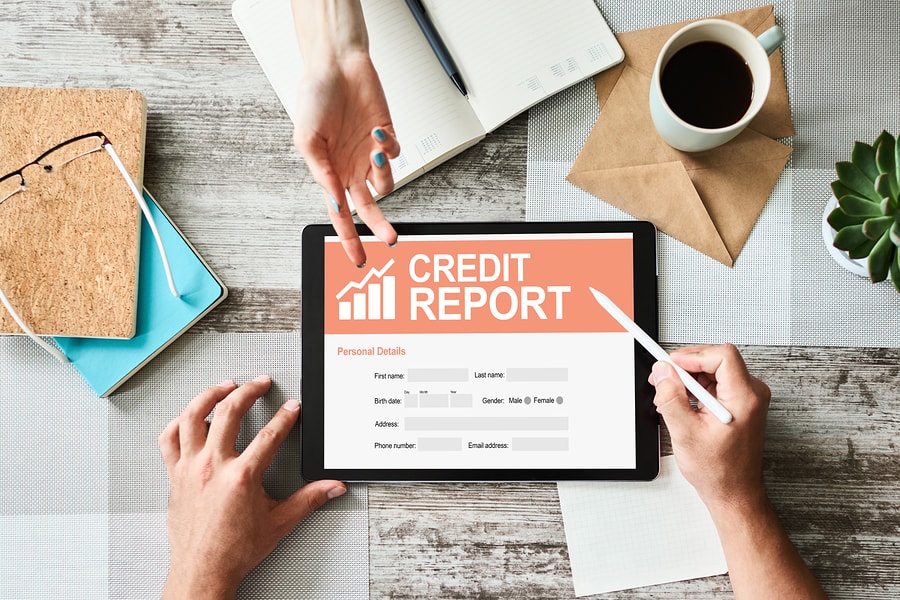What to understand before checking your credit
Regularly reviewing your credit report can help you find mistakes and identify fraudulent activities. You are entitled by federal law to a free credit report every 12 months from each of the three leading credit agencies, Equifax, Experian, and TransUnion.
For just that purpose, the three bureaus support the AnnualCreditReport.com website. In 2013, impersonators utilized the website to steal the credit reports of a few celebrities, and other swindling websites attempted to mimic AnnualCreditReport.com. But is using it safely? Before you view your reports, you should be aware of the following.
Is AnnualCreditReport.com Safe?
Your Social Security number must be provided first. Your first and last names, current address, and, if you've resided at the present address for less than two years, your previous address must also be provided to AnnualCreditReport.com. It's critical to have a general understanding of how AnnualCreditReport.com operates to comprehend the security measures it employs.
The website then asks you which credit report you would like to receive when submitting that information. One, two, or all three are your options. Consider spacing out your requests such that you only check in on one report every few months.
After you make your choice, AnnualCreditReport.com goes further to confirm your identity. You'll be prompted to check your information to ensure it's accurate.
The following step will include answering three security questions, each unique to your circumstance. For instance, you might be asked what year you took out a car loan, how much of your mortgage is still owed (in a range of dollars) or to select a past residence from a choice of cities. You will be able to view your credit report if you correctly respond to those questions (s).
Your credit scores will not be listed in your credit reports. Those can be obtained independently from Experian, TransUnion, and Equifax, but there may occasionally be charges. Sites like CreditKarma.com and CreditSesame.com offer free credit scores. Free monthly scores are another advantage offered by many big credit card issuers.
According to AnnualCreditReport.com, your information is encrypted when you fill out the form and send your information to the three bureaus. The website claims that security is maintained by "physical, electronic, and procedural measures," including internal and external firewalls.
However, no data transmission or storage can be guaranteed to be 100 percent secure, according to the disclaimer. The corporation did not answer a request for more information regarding the site's security features.
A significant data breach at Equifax in 2017 compromised the personal data of around 147 million customers. To assist those impacted by the data breach, the business has agreed to a global settlement that includes up to $425 million.
Can AnnualCreditReport.com Be Hacked?
Even though AnnualCreditReport.com takes precautions to make its website safe, your credit report may be obtained if someone is posing as you got access to enough of your data. That is what transpired in a 2013 event. TransUnion spokeswoman David Blumberg stated, "As we confirmed at the time, neither AnnualCreditReport.com nor TransUnion was compromised." TransUnion claims that "perpetrators used significant amounts" of personal information obtained from other sources to get unauthorized access to the credit reports of some celebrities.
Remember that even if someone were to get their hands on your Social Security number, address history, and date of birth, they would still need to satisfactorily complete the identity-verification questions. They would get into trouble if they didn't know who controls your mortgage or the amount owed on your student loans, for example.
How to Spot Credit Report Scams
The only website approved by the federal government is AnnualCreditReport.com, and the Federal Trade Commission refers to several websites that seem like impostors. Some websites intentionally misspell AnnualCreditReport.com so that the URL is nearly identical, while others include phrases like "free report" in their titles.
These websites might try to gather your personal information or point you in the direction of websites that are trying to sell you something. Or they can try to convince you to sign up for a credit report that appears to be free but will ultimately cost you money.
If your credit card or bank account number is requested, proceed with caution because it might be used to charge you after a free trial. A security certificate should be checked, and websites using "HTTP" rather than "HTTPS" in the address should be avoided. The website is less secure if it uses "HTTP."
Avoid websites with spelling or language mistakes, and be suspicious of calls or emails from senders claiming to be from AnnualCreditReport.com or one of the three major credit bureaus. Anyone claiming to work for those businesses is probably a fraud as they won't get in touch with you.
Frequently Asked Questions (FAQs)
On AnnualCreditReport.com, how do I read older reports?
You don't need to compare new credit reports to previous ones because every credit report will have historical data. You might need a new one if you lose your credit report.
Which reports from AnnualCreditReport.com should I order?
Requesting your credit reports while you're on the website will provide you with a complete picture of your credit profile. Any differences between the reports can be found and fixed.

